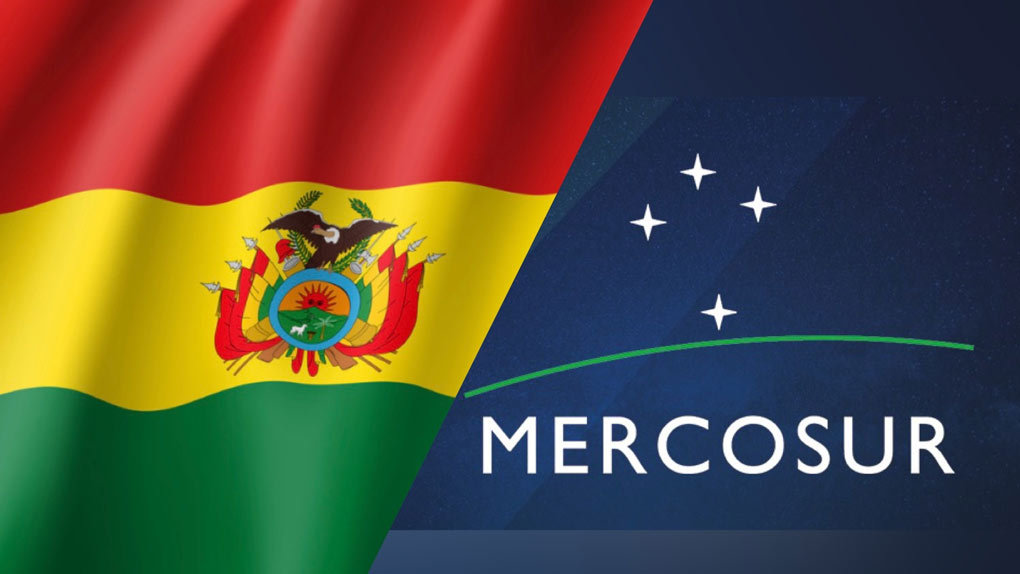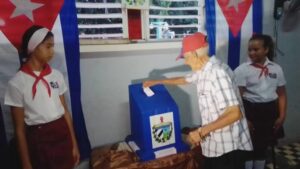With its incorporation as a full member of the Southern Common Market (Mercosur), Bolivia ended the year with a successful diplomatic activity in which it proposed initiatives to promote a better world.
On December 7, President Luis Arce proposed regionalizing the fight against drug trafficking and combating fires in the Amazon.
«There is a problem that has always burdened the region, drug trafficking, which today has even complicated political figures in several of our countries, and has shown that the fight (…) against this scourge no longer belongs to just one country», he said.
During the Summit of Heads of State held in Rio de Janeiro, Brazil, Arce expressed his concern that the battle will be lost if there is no regional confrontation against this scourge present in many nations.
«We have been stigmatized for many years (…) I am not only talking about Colombia, Mexico, Bolivia, (but) others,» he warned.
The Bolivian president emphasized the political and economic aspects, since little by little, he added, all these international mafias are beginning to interfere in these spheres.
In relation to forest fires, the president proposed the creation of a regional brigade with the capacity to take joint actions to face the challenge of the climate crisis.
«Perhaps, by joining efforts, we can have a regional brigade, at the Mercosur level, with the capacity to help where these types of events occur, we can all do more than one country individually», he said in the debate held at the Museum of Tomorrow, in Rio de Janeiro.
One of the effects of the climate crisis, he said, is permanent fires, particularly in the Amazon, and individually in nations limited in terms of economic resources and equipment to fight the flames.
He also insisted on the need to join efforts because this region is shared by Bolivia, Brazil, Peru, Colombia and Venezuela.
«We have to protect food security with food sovereignty and ensure with our own measures as food producing countries and guarantee food to the population», concluded the Bolivian president.
The Bolivian delegation was joined by Foreign Minister Celinda Sosa, Economy Minister Marcelo Montenegro and other government authorities, according to state channel Bolivia Tv.
At the end of November, the plenary session of the Brazilian Senate approved Bolivia’s Protocol of Accession to Mercosur and sent it to the Executive for enactment.
This completed the process of full incorporation, since Argentina, Paraguay and Uruguay had already given their approval.
COHERENT DIPLOMACY
Previously, during his participation in the general debate corresponding to the 78th session of the United Nations (UN) General Assembly, Arce presented seven proposals for the world to overcome the capitalist system and advance towards a new world order, in which all the peoples of the planet would be included without any type of conditioning, and where the United Nations would play a fundamental role.
During the forum, Arce warned that the current multidimensional crisis demands a strong United Nations organization, consistent with the principles that created it, committed to peace, that maintains its intergovernmental character, but without subordination to any hegemonic power, be it economic, political or military.
«Because the solutions to the multiple challenges facing humanity will only become a reality with the genuine commitment and political will of all countries and their actors, with priority in the common interest of humanity, of the peoples and of the most vulnerable sectors of humanity,» said the authority in front of the plenary.
On this occasion, Arce presented seven proposals emanating from the Plurinational State, referring to the solution of armed conflicts through dialogue and diplomacy of the peoples, and thus put an end to the arms race that threatens humanity, especially those nations that are far from this confrontation, but still suffer its effects.
«We must give peace a chance, and in this task the United Nations Organization has a fundamental role to play in reducing tensions and advancing in dialogues that allow us to consolidate political and diplomatic solutions to the conflicts that occupy the agenda of our organization (…). We deeply regret that the maintenance of peace and security has become an increasingly challenging goal,» he said.
In this order, Arce called, in the second proposition, to build a new pact that ensures the needs of present and future generations. Arce, at this point, called on nations to «recognize ourselves in each other and repair relationships as humanity», which will allow the world to accelerate actions on the 2030 Agenda and far exceed it.
He also called on nations to change the capitalist system as a matter of urgency, since it multiplies the forms of domination and exclusion of the majorities and shows its worst face in the context of the post-pandemic and the effects of the military conflict in Eastern Europe.
President Arce highlighted the implementation of the Economic and Social Development Plan in Bolivia, which allowed the country to face the global crisis of the pandemic, and managed, among other things, to maintain an accumulated inflation of 1.6 percent, one of the lowest in the region and the world during 2023.
A fourth element pointed out by the South American country’s dignitary refers to assuming concrete actions and commitments to overcome the climate crisis, such as the one promoted by Bolivia before the United Nations General Assembly for the recognition of Mother Earth as a being deserving of rights, which is based, he said, on the precepts of the indigenous peoples of the Plurinational State of Bolivia.
Arce referred to the climate crisis that is having an effect on all countries with the water shortage that, although it used to affect the most vulnerable sectors in particular, is now beginning to be felt in sectors that are not considered as such.
The fifth point raised by the President was related to the existing understanding of human rights and democracy, of which, he said, understanding must be broadened, since the concepts were built to the detriment of those understood by sectors such as indigenous peoples.
«We have had to sail through the gale of a crisis imposed only on the South. Since then, it is not the same to talk about economic, social and cultural human rights such as health, education, food, access to knowledge and technologies in one continent as in another; in the south as in the north (…)».
… «in the Plurinational State of Bolivia, we have understood that there is no democracy without development. And development cannot have a better indicator than the exercise of collective rights, promoted, protected and guaranteed by the State, but combined with a high level of democratic participation of social collectives,» he said.
Similarly, Arce referred to the economic, commercial and financial blockade imposed by the United States government against Cuba unilaterally and with supranational reprisals, which has had a direct impact on citizens for six decades.
Regarding this issue, Arce called on the General Assembly to comply with the resolutions approved with the vote of the vast majority of UN member states.
The president exclaimed from the rostrum of that multilateral forum that «we reject and condemn the inclusion of Cuba as a promoter of terrorism within the unilateral lists of the United States with which it imposed greater restrictive measures against the Cuban people. These measures are contrary to the Charter of the United Nations and the mandate of the Security Council, and therefore have no support or validity in the light of international law, and moreover, seriously affect the right to development of the Cuban people».
In the last proposal, the Bolivian president referred to the violent Israeli occupation of the Palestinian people, a point on which Bolivia reiterated its support for the resolutions issued by the UN to seek a solution to this conflict, so that Palestine can exercise its independence as a sovereign state.




